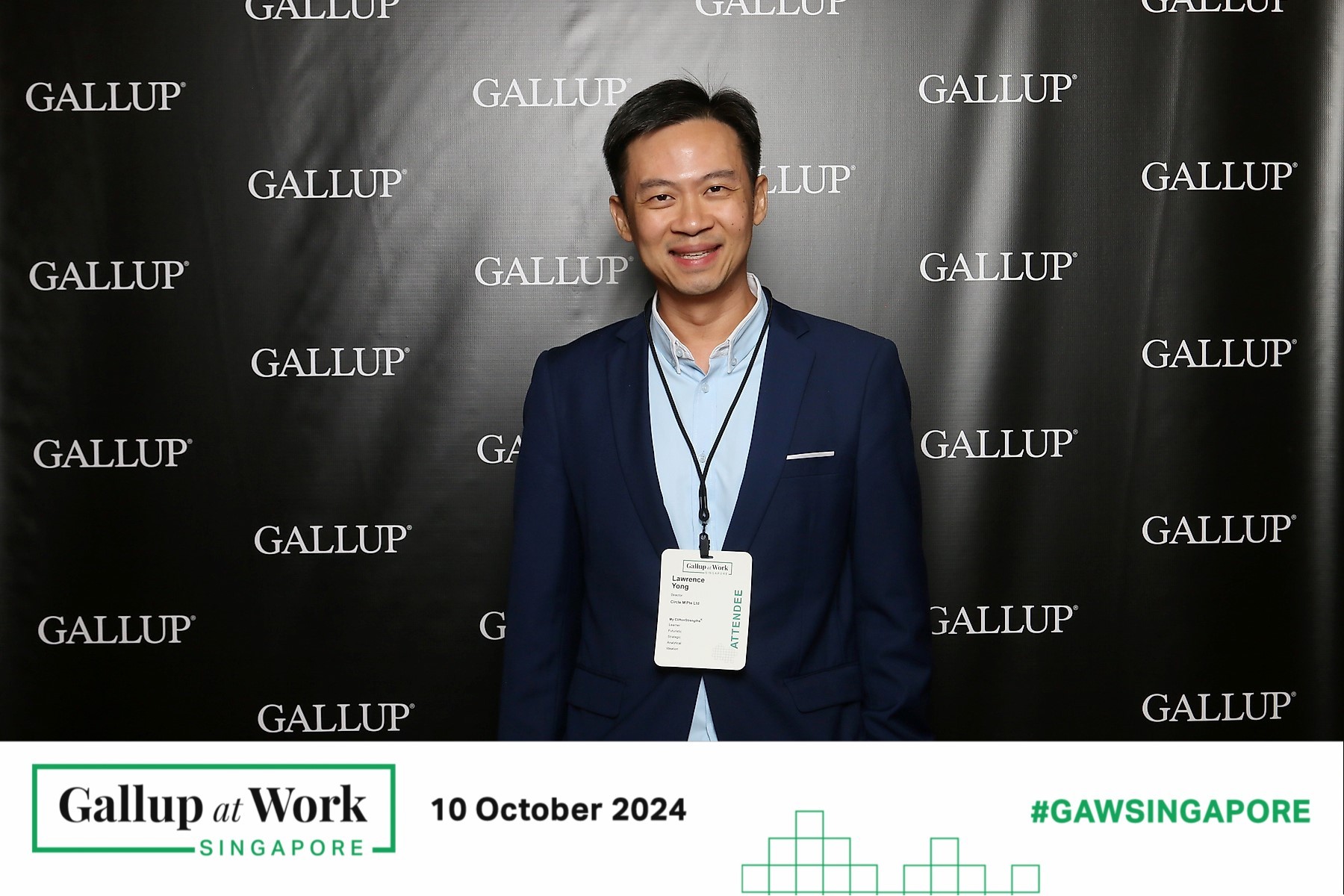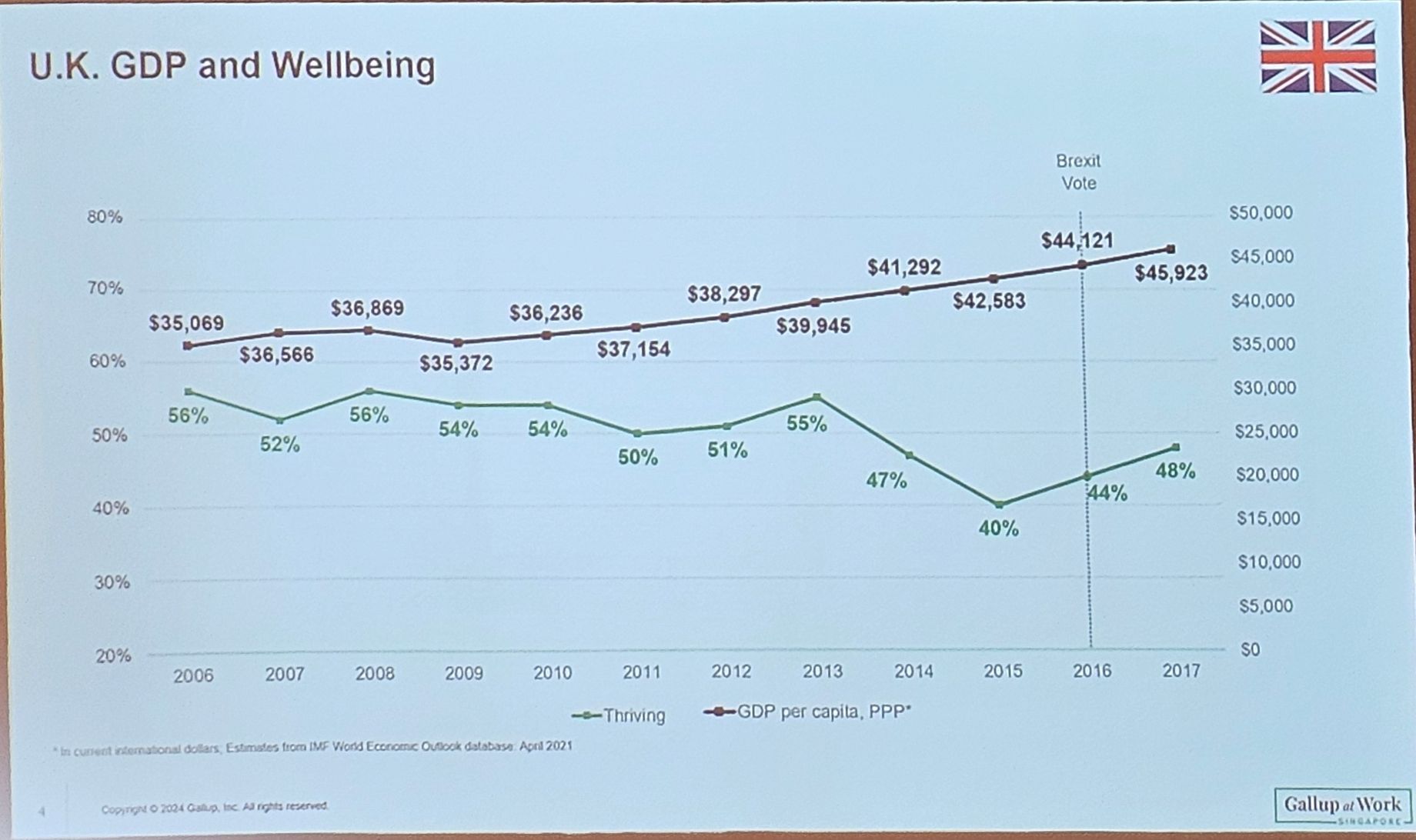𝐈𝐭 𝐰𝐚𝐬 𝐚 𝐭𝐫𝐮𝐥𝐲 𝐭𝐡𝐨𝐮𝐠𝐡𝐭-𝐩𝐫𝐨𝐯𝐨𝐤𝐢𝐧𝐠 𝐞𝐱𝐩𝐞𝐫𝐢𝐞𝐧𝐜𝐞....

Yesterday, I attended the inaugural Gallup@Work Singapore Conference.
1️⃣ Gallup CEO Jon Clifton kicked off the event with a compelling keynote about the “emotional economy.”
Long have we been focused on the idea that money buys happiness, measuring progress by GDP growth. However, political upheavals despite rising GDP per capita contradict this.
A notable example is the UK, where steady GDP growth contrasted with a sharp decline in well-being, fueling negative emotions that contributed to Brexit.
𝐓𝐚𝐤𝐞𝐚𝐰𝐚𝐲 #𝟏: Extending to business, organizations need to focus not only on the products or services they provide but also on how those offerings make their customers feel. This same principle should apply to their employees!

2️⃣ An inspiring story came from Peng Sum Choe, CEO of Pan Pacific Hotels Group, one of the sectors hardest hit by COVID-19.
Despite revenue plummeting, the company prioritized its people and chose not to lay off any of its 6,000 staff even in the face of existential risks.
The staff responded not only with cooperation but also by setting up grassroots soup kitchens to help the homeless and needy.
Their guiding principle? “Do unto others as you would have them do unto you.”
𝐓𝐚𝐤𝐞𝐚𝐰𝐚𝐲 #𝟐: Employees seek trust, compassion, stability, and hope from their leaders.
When leaders genuinely care for their people, trust flourishes, and that sense of care extends outward, positively impacting the wider community.
This is business at its best—focused on people, not just profits. Contrast this to hire-and-fire practices that treat employees as disposable resources.
3️⃣ Alvin Aloysius Goh (MSHRI, MCIPD, MSID, IHRP-SP), Executive Director of SHRI, in his session, introduced an insightful reframe with the concept of “Piivot”:
- Purposeful
- Intensity / Interactive
- Versatile
- Opportunistic
- Transient
𝐓𝐚𝐤𝐞𝐚𝐰𝐚𝐲 #𝟑: In an era of exponential change, we may increasingly reflect on the balance between "being" and "doing," and the idea of a singular, linear career may become outdated.
Instead, there may be a need to periodically reassess and align our skills and experiences, both vertically and horizontally.
Fractional roles, varying in intensity and scope, might provide more opportunities for growth and unlock access to underutilised human capital.
👉 All of these tie back to the idea of developing our talents into strengths, because talents thrive best through the connection with another human being.
This article was first published as a LinkedIn post on Oct 11 2024.
